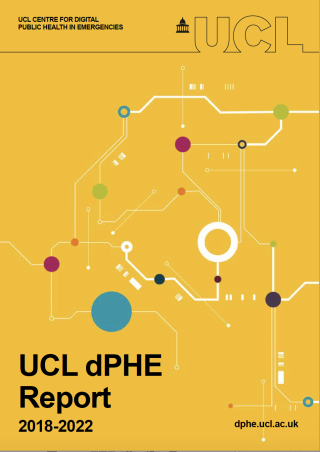dPHE 6th Annual Workshop: Vector-borne diseases Digital One Health approach
15 May 2024, 3:00 pm–9:00 pm
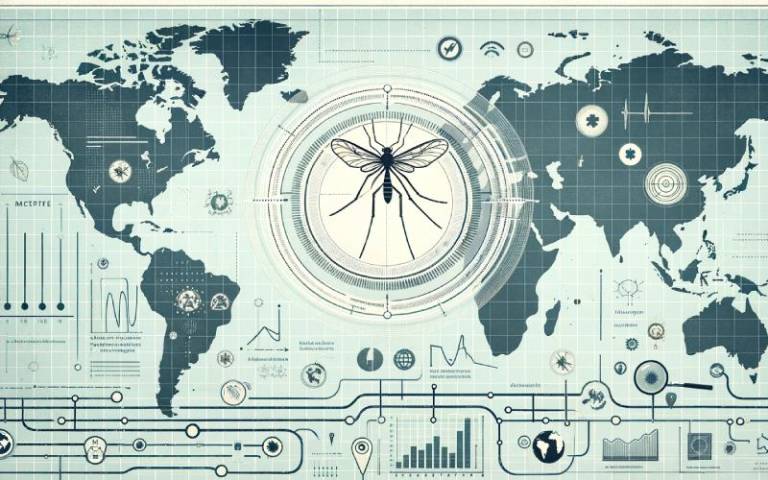
Join the UCL dPHE Centre to celebrate its 6th anniversary during its annual conference and interdisciplinary workshop.
This event is free.
Event Information
Open to
- All
Availability
- Yes
Cost
- Free
Organiser
-
Professor Patty Kostkova – UCL Institute for Risk and Disaster Reduction
Location
-
Denys Holland Lecture TheatreBentham HouseEndsleigh GardensLondonWC1H 0EGUnited Kingdom
Join us at an international workshop on ‘Vector-borne diseases - the Digital One Health approach’ to celebrate the UCL dPHE Centre's 6th anniversary, presenting a line-up of stellar international speakers including Dr Diana Rojas Alvarez from WHO Emergency Programme (WPE/WHE) and the UN One Health Initiative, Dr Pedro Ramos, the Regional Minister of Health, Madeira, Portugal, Dr Jailson Correia, former leader of the Zika outbreak response in Brazil in 2015, Prof Kate Jones, world leading ecologist and modeller and Prof Patty Kostkova, digital health and surveillance expert from UCL, Prof Tercio Ambrizzi, weather and climate modelling leaders, USP, Brazil, and many more.
Vector-borne tropical diseases (such as Zika, chikungunya and dengue) – transmitted by the mosquito Aedes aegypti – are endemic in Northeast Brazil, where the devastating Zika outbreak took place in 2015, and across all tropical parts of Brazil and Latin America. In Europe, on the island of Madeira, an unexpected deadly outbreak of dengue fever occurred in 2012. Surveillance of the vectors – aiming to destroy the mosquitoes ideally in a larvae stage – is mostly manual, paper-driven and a poorly funded operation of government environmental agencies causing needless human loss through inadequate public health response. Vector-borne diseases are highly climate-sensitive – as global warming is contributing to the changing habitat of mosquitoes, vector-borne tropical diseases will become endemic in Europe and other parts of the world.
This interdisciplinary workshop will present the results of the MEWAR project (2019-2024) – digital vector surveillance collecting data for spatio-temporal models determining vector dynamics and predicting high-risk breeding hotspots. The digital One Health approach – human, animal and environmental surveillance and modelling – enables early warning and rapid response protecting public health, and in the long run will accelerate the development of climate-resilient, sustainable and equitable health systems.
Programme
Time | Speaker | Affiliation | Talk Title |
2:45 | Registration | ||
Welcome | |||
3:00 | Opening remarks | ||
Professor Patty Kostkova | UCL Centre for Digital Public Health in Emergencies, University College London, UK | Welcome & Introduction: One Digital Health & MEWAR | |
Session 1 | |||
3:15 | Pedro Ramos | Regional Secretary for Health and Civil Protection, Regional Government of Madeira | Opening Keynote Talk: Atlantic Health System: A digital chanllenge for the future |
3:45 | Chair: Prof Kate Jones | dPHE, UCL & People and Nature Lab | Panel Debate: Digital sensing and vector modelling of vectors in the context of climate change |
Dr Bruna R. Ornelas de Gouveia | Regional Director of Health, at the Regional Health Directorate, Government of Madeira, Portugal | ||
Professor Tércio Ambrizzi | Director of the Institute of Energy and Environment - IEE, University of São Paulo | ||
Dr Luiza Cintra Campos | Department of Civil, Environmental, and Geomatic Engineering, UCL | ||
Dr Ella Browning | Research Fellow based between the UCL Centre for Biodiversity and Environment and dPHE | ||
4:45-5:15 | Coffee break | ||
Session 2 | |||
5:15 | Chair: Professor Patty Kostkova | UCL Centre for Digital Public Health in Emergencies, University College London, UK | Panel Debate: Digital diseases surveillance - public health response in the real world |
Professor Tiago Massoni | Department Systems & Computing, Federal University of Campina Grande, Campina Grande, Brazil | ||
Professor Jailson de Barros Correia | University of Pernambuco, Instituto de Medicina Integral Prof. Fernando Figueira and Faculdade Pernambucana de Saúde | ||
Dr Eduardo Rodrigues de Lima | Research and Development Manager, Eldorado Research Institute | ||
George Wallenberg | Environmental surveillance operational supervisor, Recife City Hall | ||
Aisha Aldosery | Centre for Digital Public Health in Emergencies, University College London, UK | ||
6:15 | Dr Diana Rojas Alvarez | Department Epidemic and Pandemic Preparedness and Prevention, Health Emergencies Programme, WHO | Closing Keynote Talk: One Health: A multisectoral approach for preparedness, prevention and control of vector-borne diseases |
6:45 | Closing remarks | ||
7:00-9:00 | Poster Session and Drinks reception | ||
Poster topics & Speakers | |||
MANTRA game analytics: Effectiveness of educational mobile game on knowledge gain and retention of Female Community Health Volunteers (FCHVs) and women in rural Nepal assessed through game analytics | Dr Katerina Stavrianaki, UCL IRDR and UCL Department of Statistical Science | ||
Connecting the Dots: Exploring the Links Between Dengue Incidence and Environmental Factors in São Paulo and Recife, Brazil | Prof Tercio Ambrizzi, Iuri Valerio Graciano Borges, University of São Paulo | ||
Aedes Aegypti surveillance on Madeira Island | José Maurício Faria Santos, Duarte Araújo, Guilherme Madruga, Maria Monte, Direção Regional da Saúde da Madeira | ||
How has the experience of COVID-19 shaped perceptions of pandemic risk? | Emma Back, Centre for Digital Public Health in Emergencies (dPHE), University College London, UK | ||
The direct and indirect effects of China’s COVID-19 policies: A mixed method study | Xiaohui Shen, dPHE, UCL, UK | ||
Internet of Things based Surveillance System for Predicting Areas with High-risk of Mosquito Infestation | Aisha Aldisery, dPHE, UCL, UK | ||
Tailored Intervention Strategies to Improve Influenza Vaccination Knowledge, Attitude and Behavior among Chinese University Students in the UK: A Three-Step Approach | Lan Li, dPHE, UCL, UK | ||
Confirmed speakers
- Professor Patty Kostkova (dPHE director, UCL IRDR)
- Patty Kostkova is Professor in Digital Health and the Director of UCL Centre for Digital Public Health in Emergencies (dPHE). She was a consultant at WHO, ECDC, Sky, Telefonica. Her research investigates mobile surveillance in Brazil, maternal health in Nepal and antibiotic stewardship in Nigeria and the NHS. During COVID-19, she lead an award winning project My Lockdown Journal. In 2019 and 2020, Patty won the 'Innovator of the Year' Award by Computing Women in IT Excellence Awards and the prestigious Coronaprofile by Business Science, while her team won the Team of the Year 2020 Award by Computing Rising Stars Awards. Patty published over 230 peer-reviewed papers, and is the Editor in chief of Frontiers in Digital Public Health, and General and Scientific Chair of International Public Health Conference since 2009.

- Professor Kate Jones (dPHE, UCL & People and Nature Lab)
- Kate Jones has held appointments at the University of Cambridge, Columbia University, University of Virginia, Imperial College London, and is an honorary fellow at the Zoological Society of London. She has written over 150 articles and book chapters in prestigious journals, is a UK government scientific advisor, chaired The Bat Conservation Trust for 5 years, and served as an expert advisor to the UK’s Climate Change Committee. Kate won the Leverhulme Prize for outstanding contributions to Zoology in 2008, and in 2022 won both ZSL’s Marsh Award for Conservation Biology and British Ecology Society’s Marsh Award for Ecology.

- Dr. Luiza Cintra Campos (Department of Civil, Environmental, and Geomatic Engineering, UCL)
- Luiza Campos is a civil engineer with a PhD from Imperial College, UK, and an MSc in Water and Sanitation from the University of Sao Paulo, Brazil. Prior to relocating to the UK, she accumulated 10 years of experience working for the state water and sanitation company of Goias and another 10 years as a lecturer at the Federal University of Goias in Brazil. Currently, she holds the position of Professor of Environmental Engineering at the Department of Civil, Environmental & Geomatic Engineering at UCL, where she has been employed since 2007. During her tenure at UCL, Luiza has held various roles including Undergraduate Admissions Tutor (2009-2013), Director for the Environmental Engineering Undergraduate Programme (2010-2014), Departmental Equal Opportunities Liaison Officer (2015-2018), and led the Athena Swan application resulting in the Department being awarded a Bronze Award for advancing gender equality practice in 2016. Presently, she serves as the head of the UCL Water Research Group, Director for the UCL MSc Engineering for International Development, Co-Director of the UCL Centre for Urban Sustainability and Resilience, Co-Chair of the South East and London Water Alliance, and Chair of the IWA Specialist Group in Sanitation and Water Management in Developing Countries. In recognition of her contributions, Luiza was honoured with the Gold Medal awarded by the Institute of Civil Engineers for engineering excellence in 2023. Her research focuses on water and sanitation systems, with particular interest in (1) advancing developments in water treatment technologies; (2) exploring interlinkages in the water nexus; and (3) promoting improvements in sanitation, hygiene, and health.
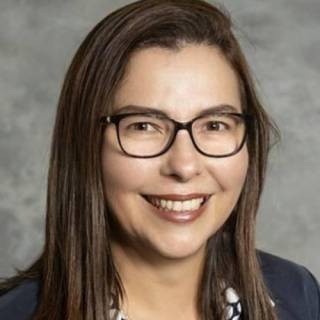
- Pedro Ramos: Regional Secretary for Health and Civil Protection, Regional Government of Madeira
- Pedro Ramos is a member of the Regional Government of Madeira - Health System since 2016.
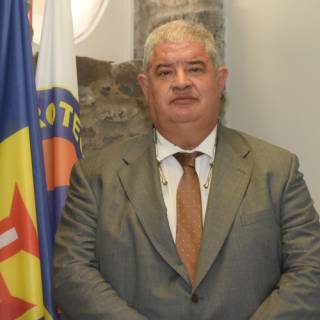
- Professor Tércio Ambrizzi, Director of the Institute of Energy and Environment - IEE, University of São Paulo
- Tércio Ambrizzi is a full Professor at the Department of Atmospheric Sciences, University of Sao Paulo (USP), Brazil. He is coordinator of INCLINE (INter-disciplinary CLimate INvestigation cEnter) USP's Center for Research on Climate Change. Titular member of the Brazilian Academy of Sciences. Works in the area of Atmospheric Sciences, with emphasis on Dynamic Meteorology, Numerical Modeling and Climate Change. He has published hundreds of articles in specialized journals, several book chapters and supervised many Ph.D., MSc. and Pos-Doc students. Nowadays he is the Director of the Institute of Energy and Environment, USP.
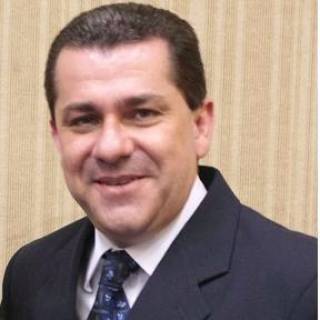
- Professor Tiago Massoni: Department Systems & Computing, Federal University of Campina Grande, Campina Grande, Brazil
- Tiago Massoni is an associate professor at the Federal University of Campina Grande, Northeast of Brazil. His main research interest is software engineering, in special software architecture and verification, and its applications, including health care, having advised more than 30 graduate students. He currently is the head of Telmo Araujo Technological Innovation Center, which encompasses more than 40 R&D partnerships between the university and companies. He has been cooperating with research with vector-bourne diseases for at least 7 years, engaging in IT-based solutions to support the research activities.
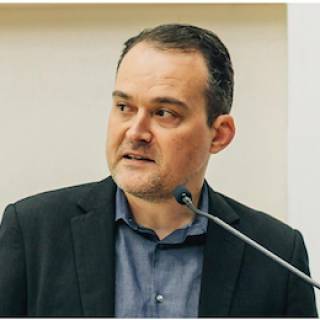
 Close
Close


